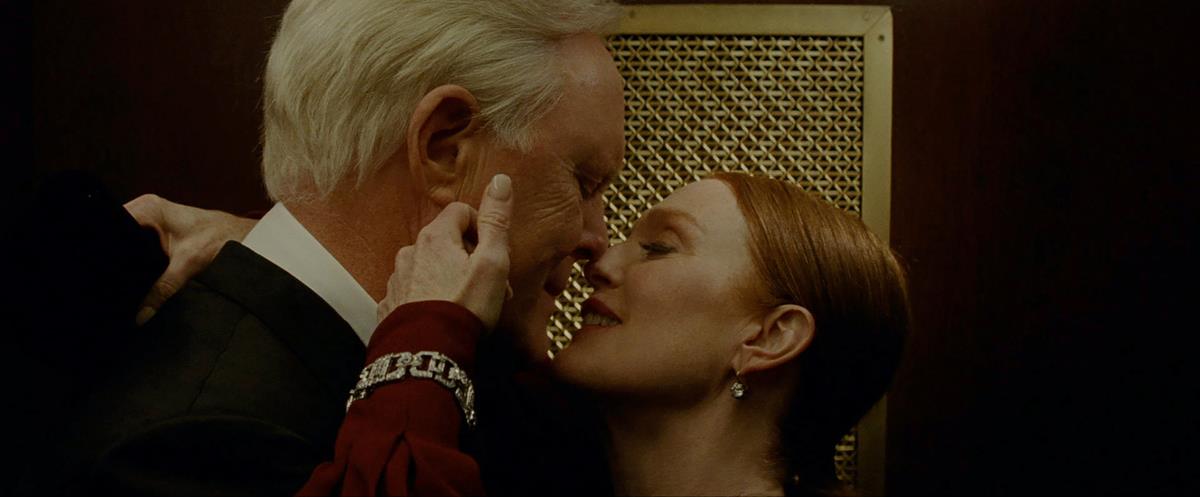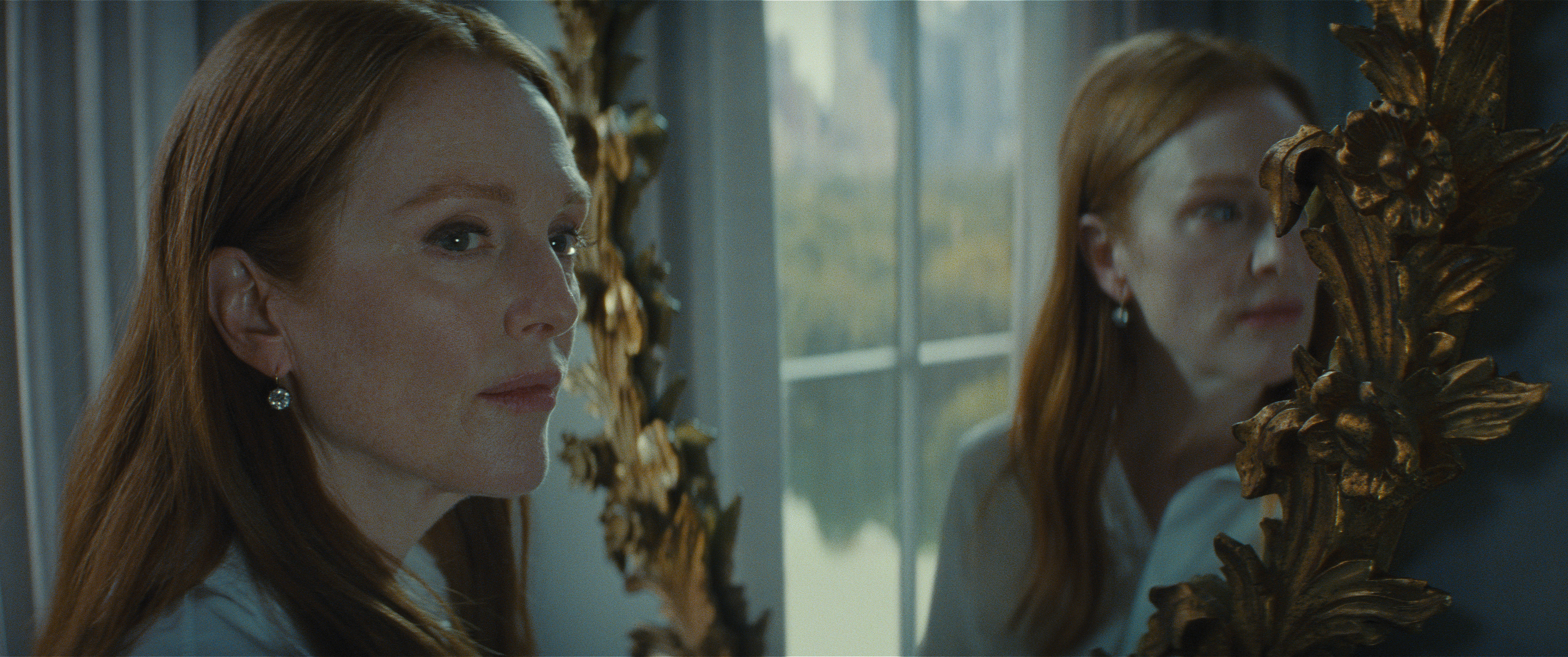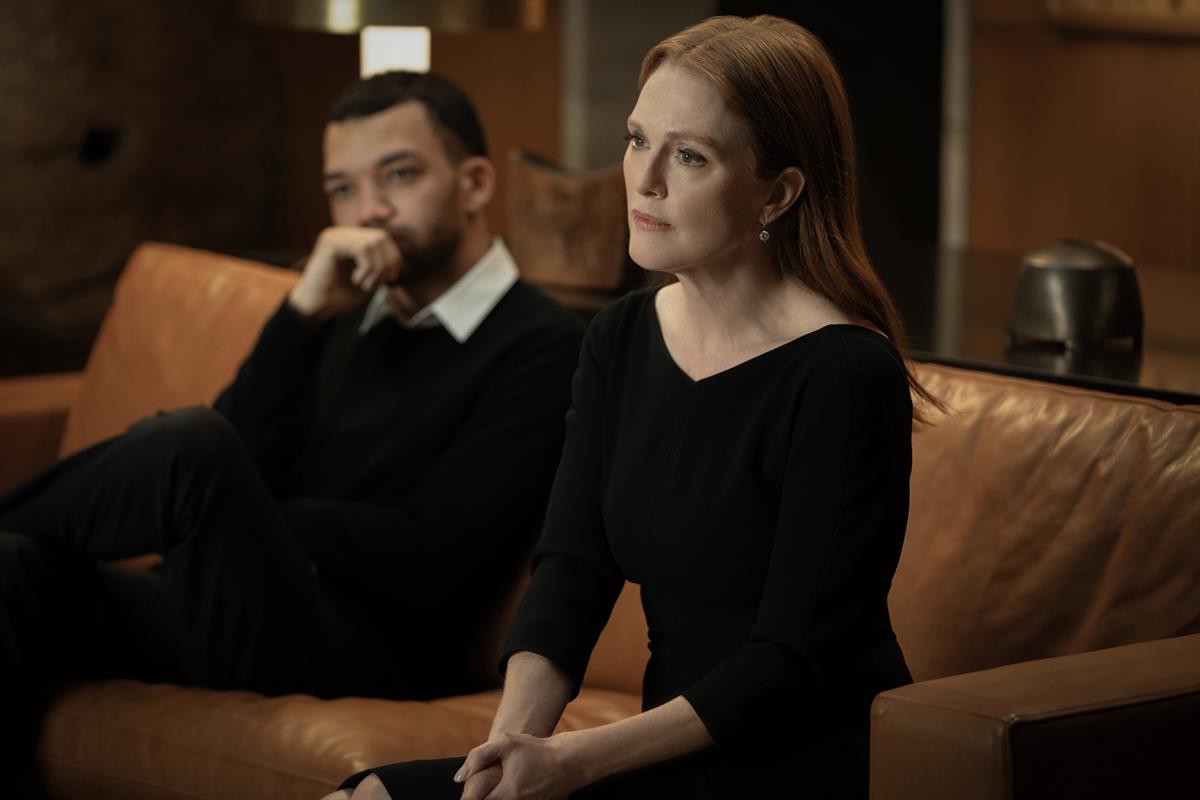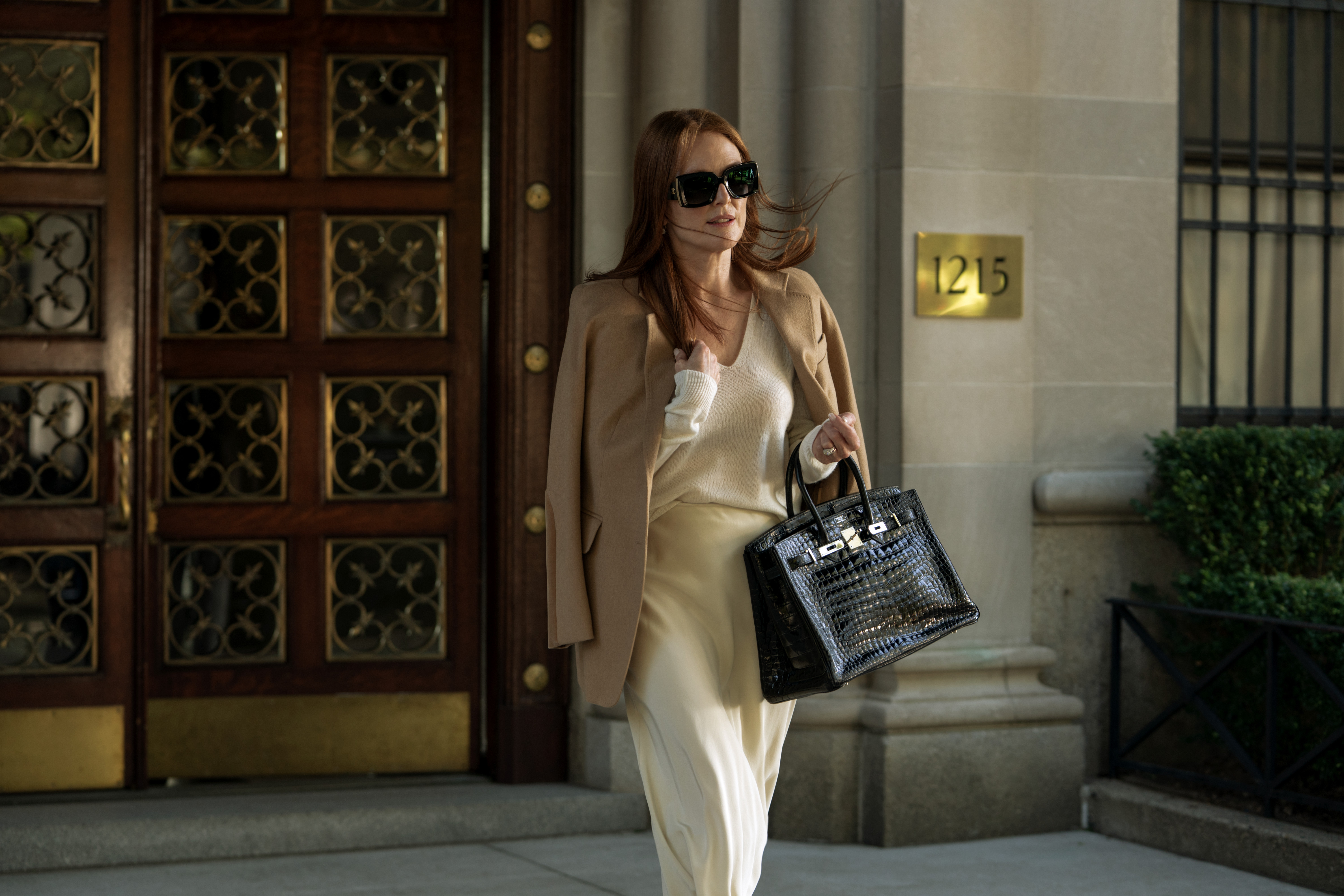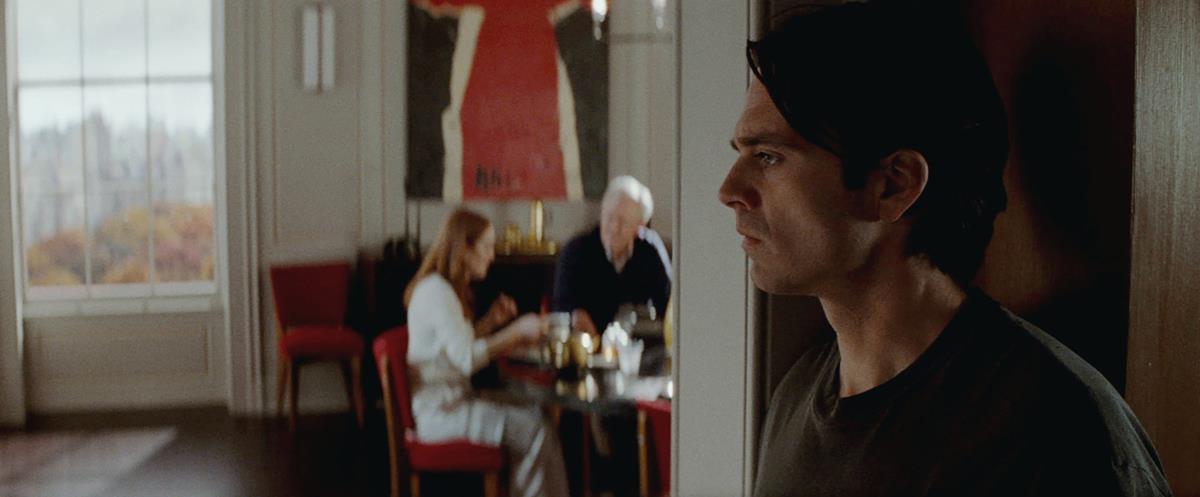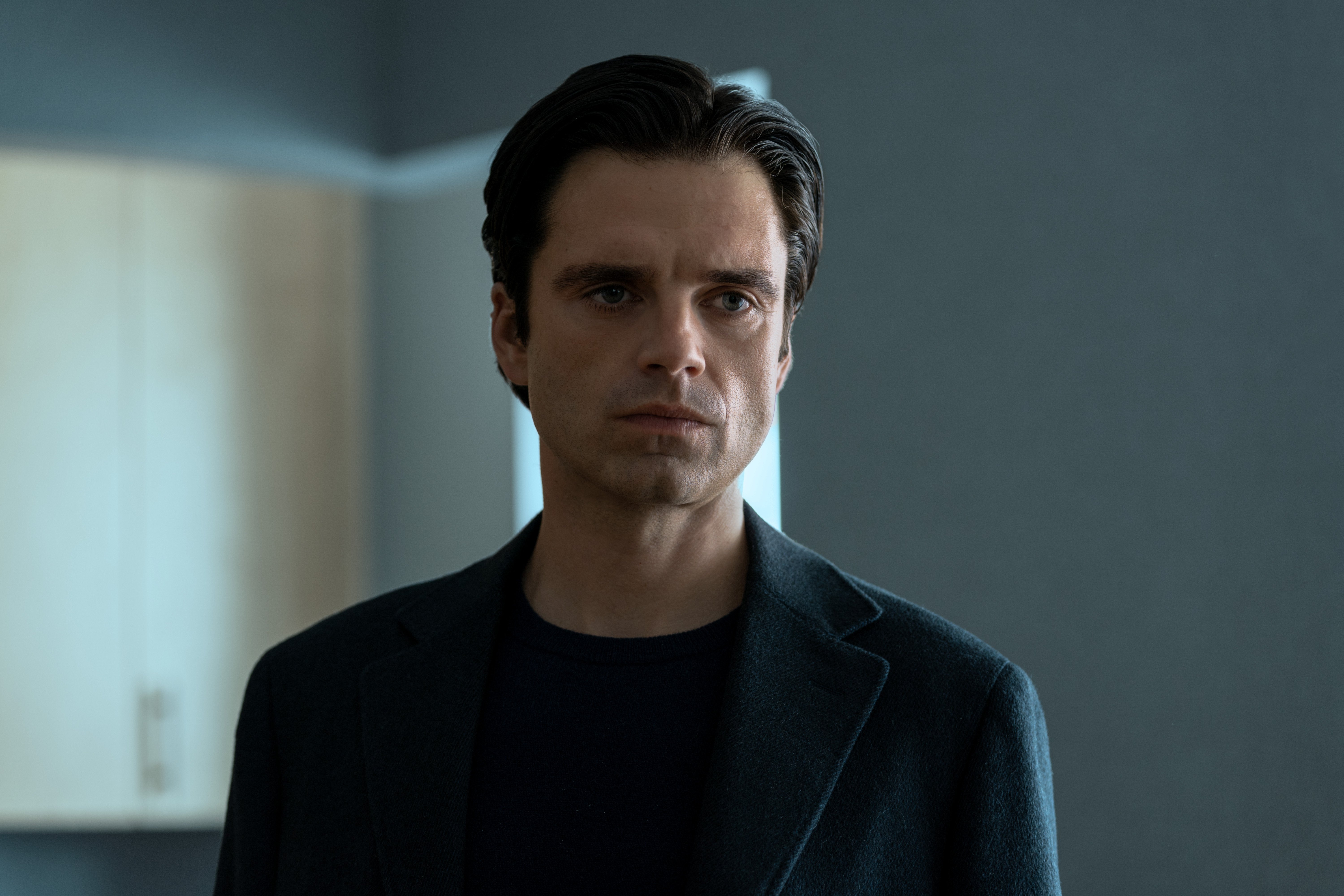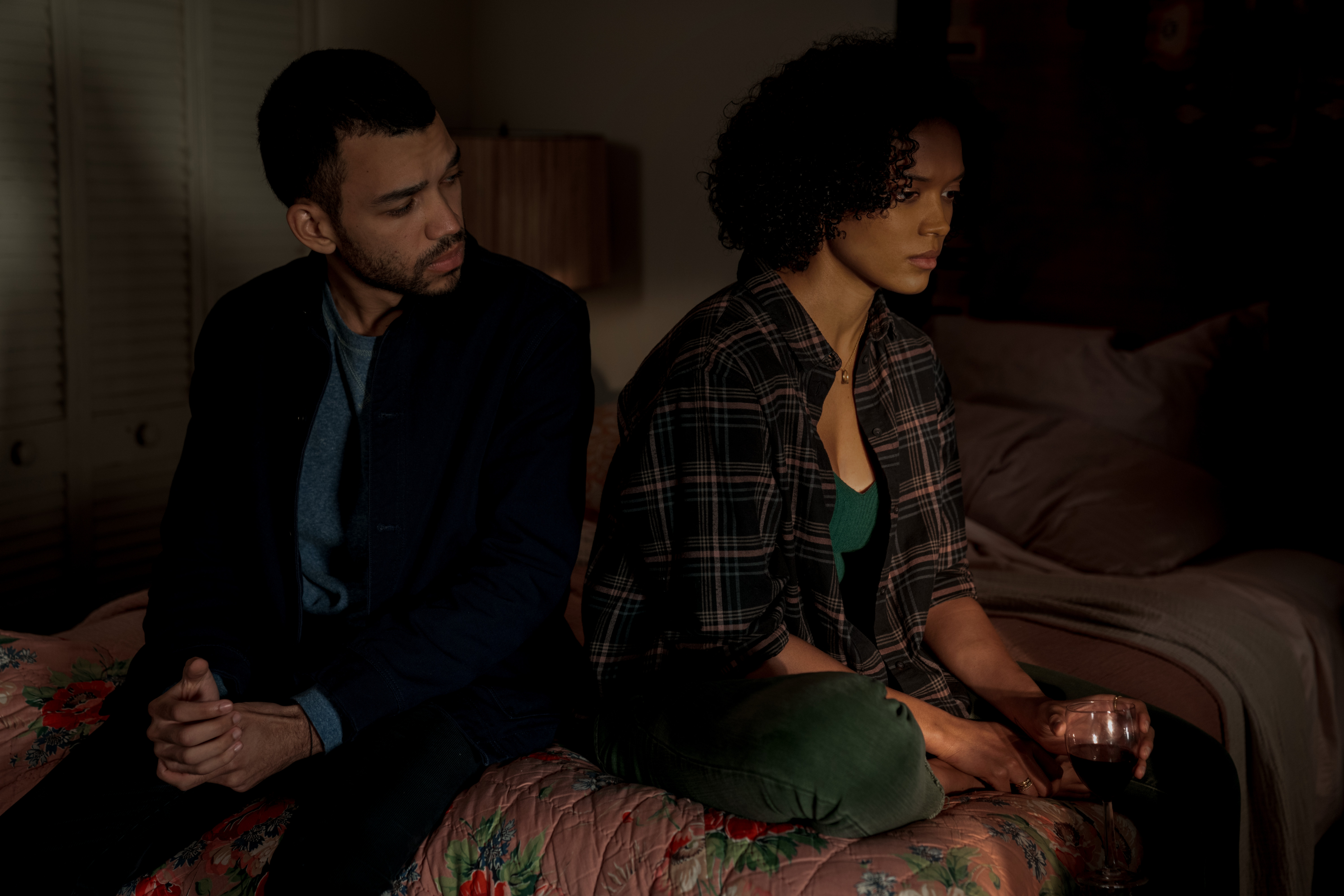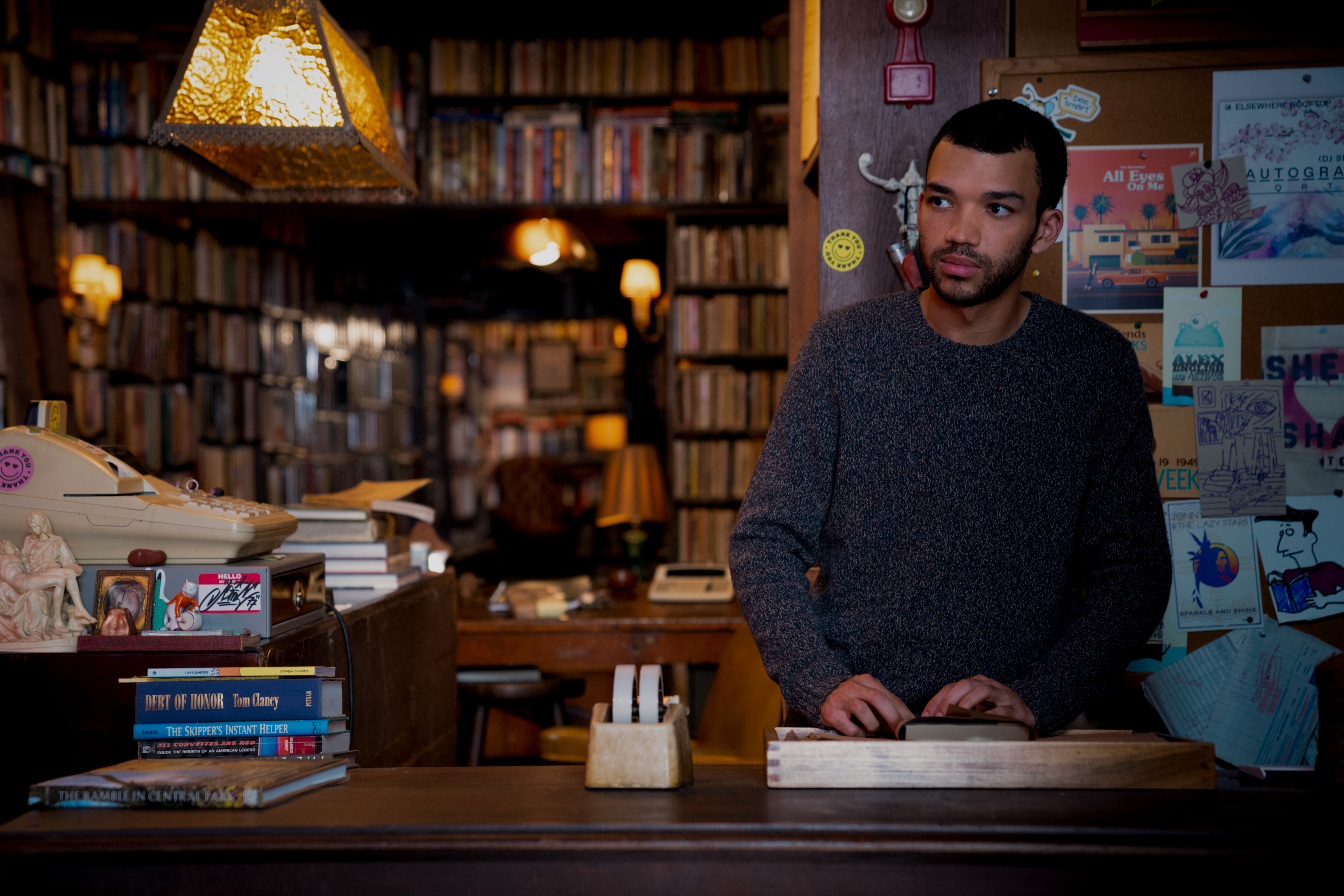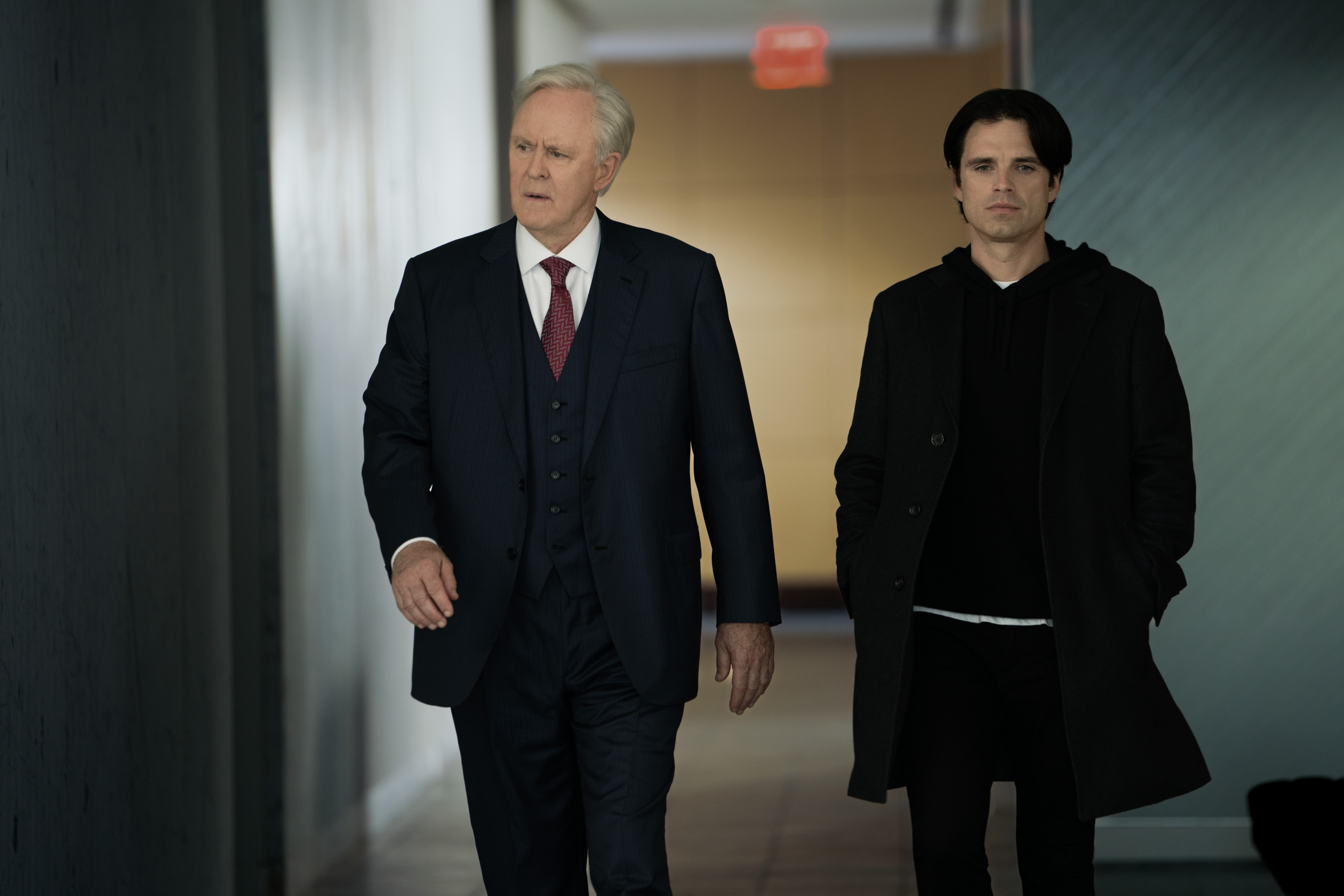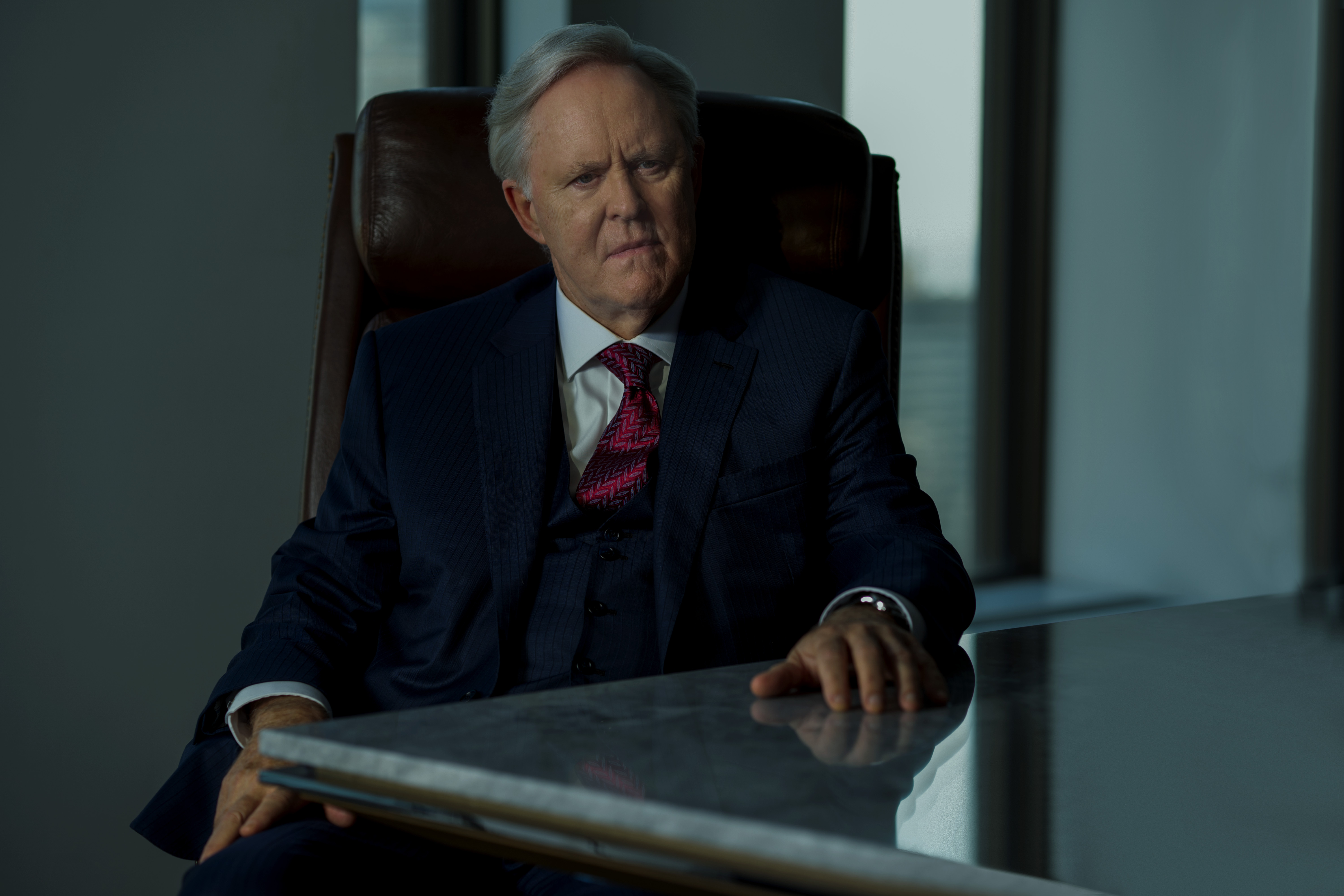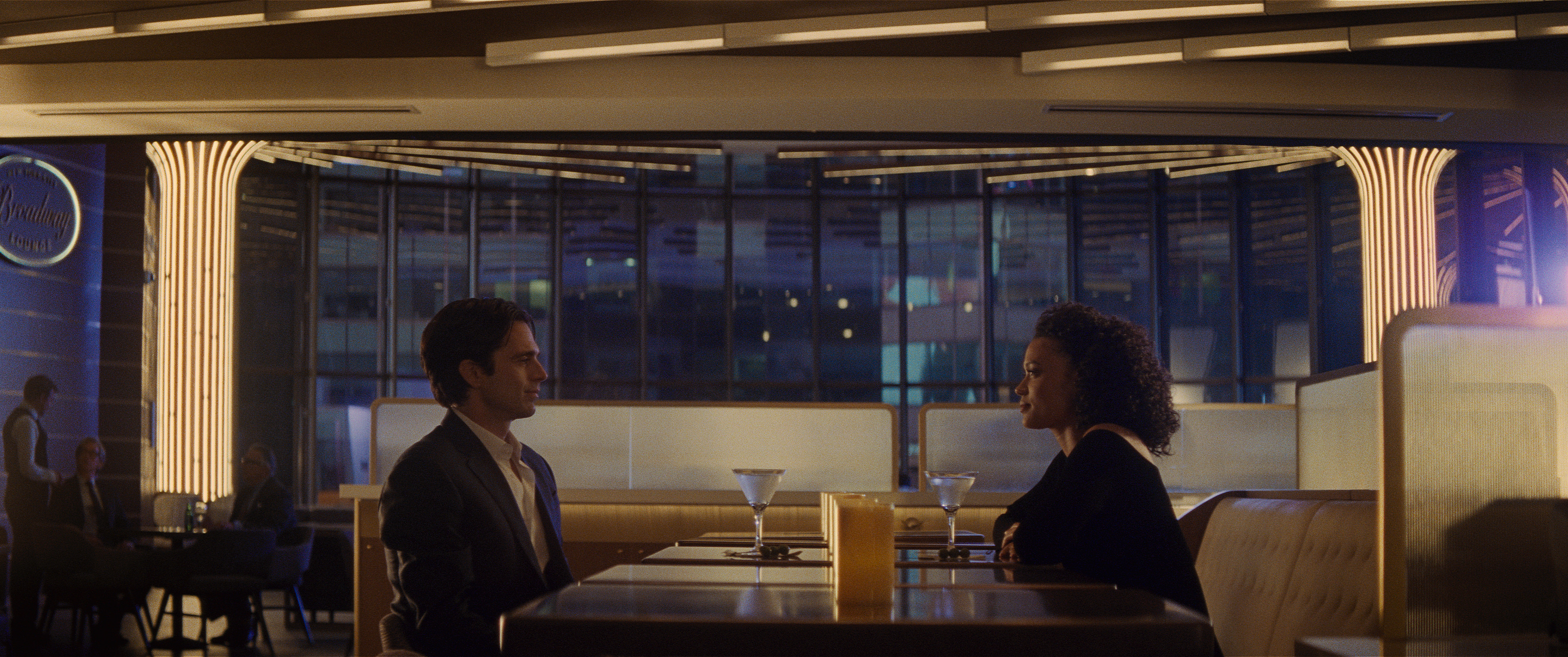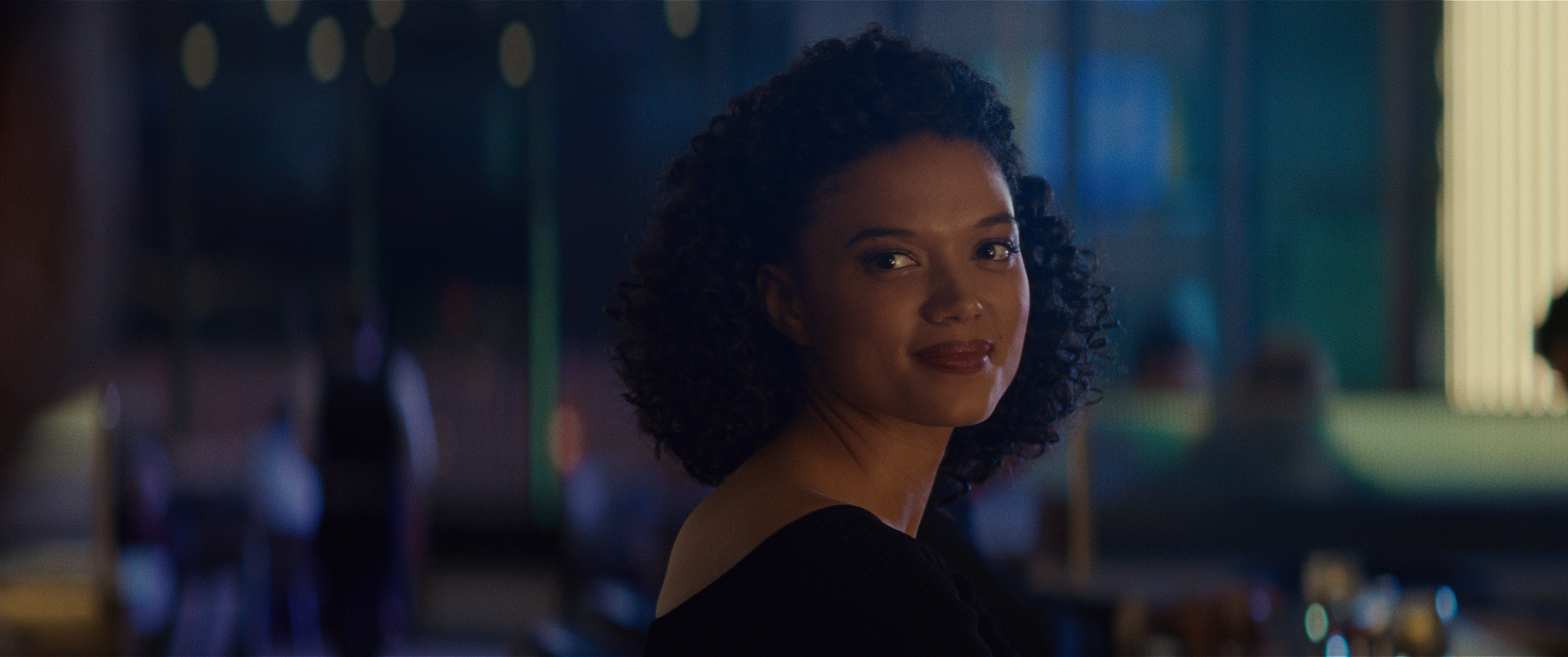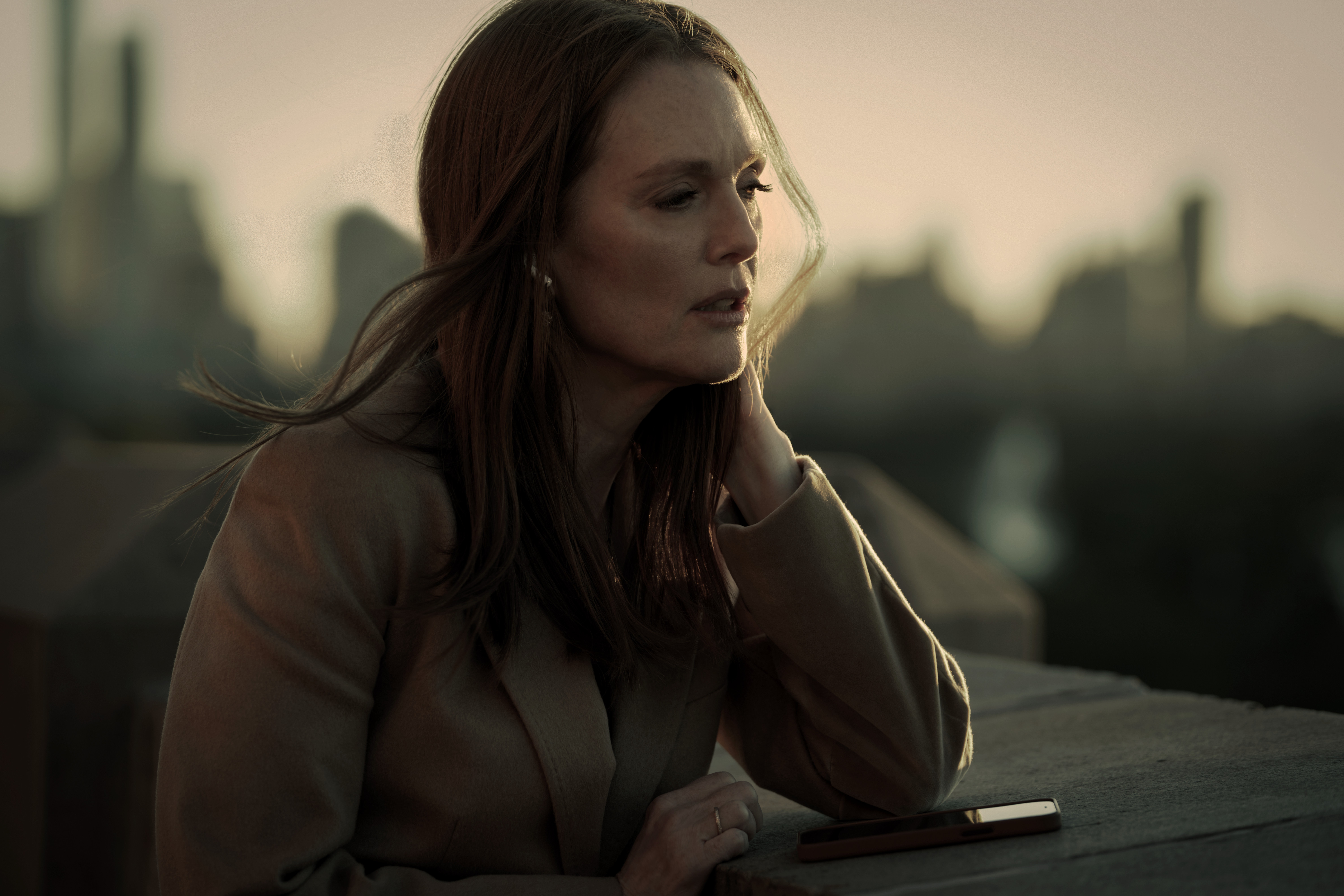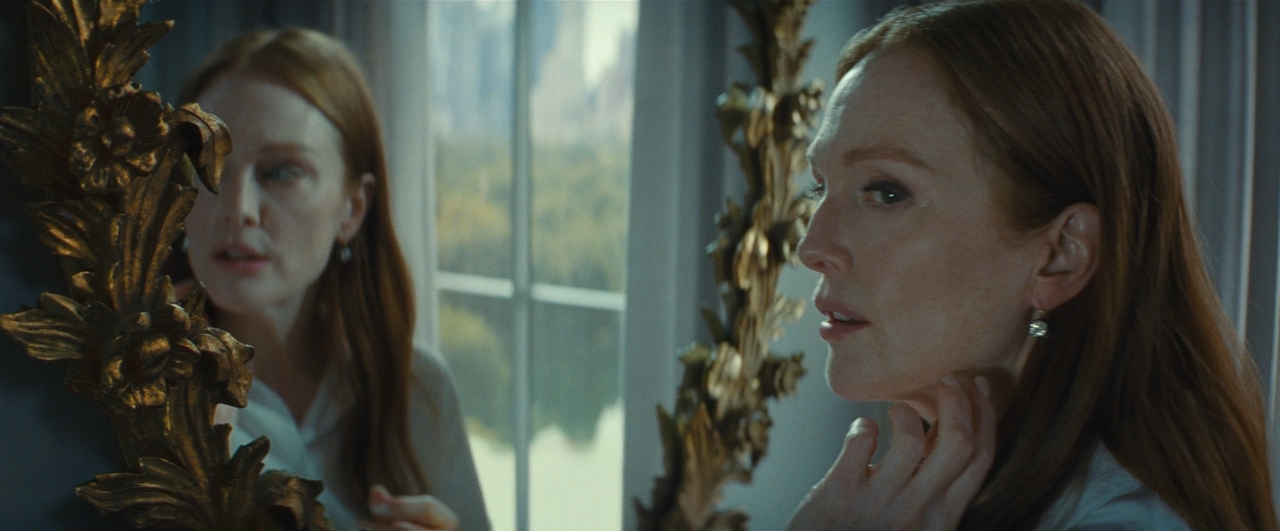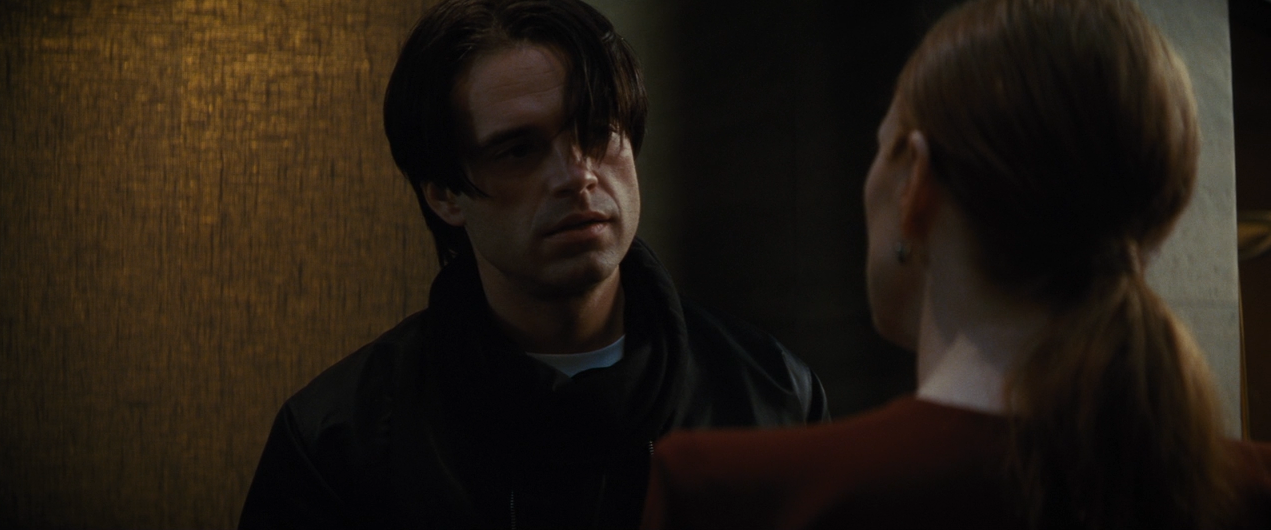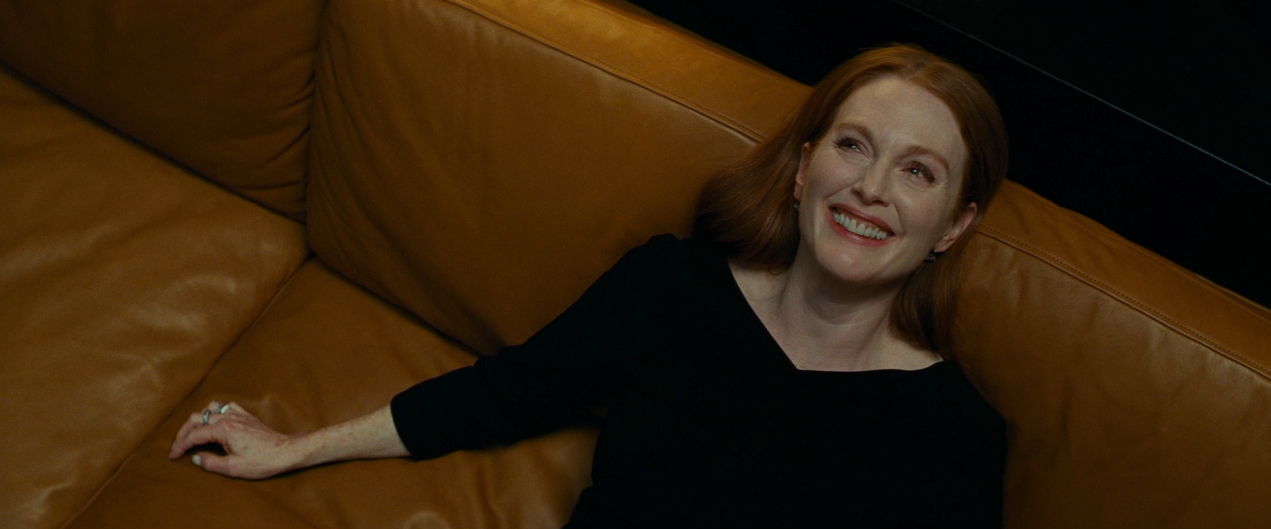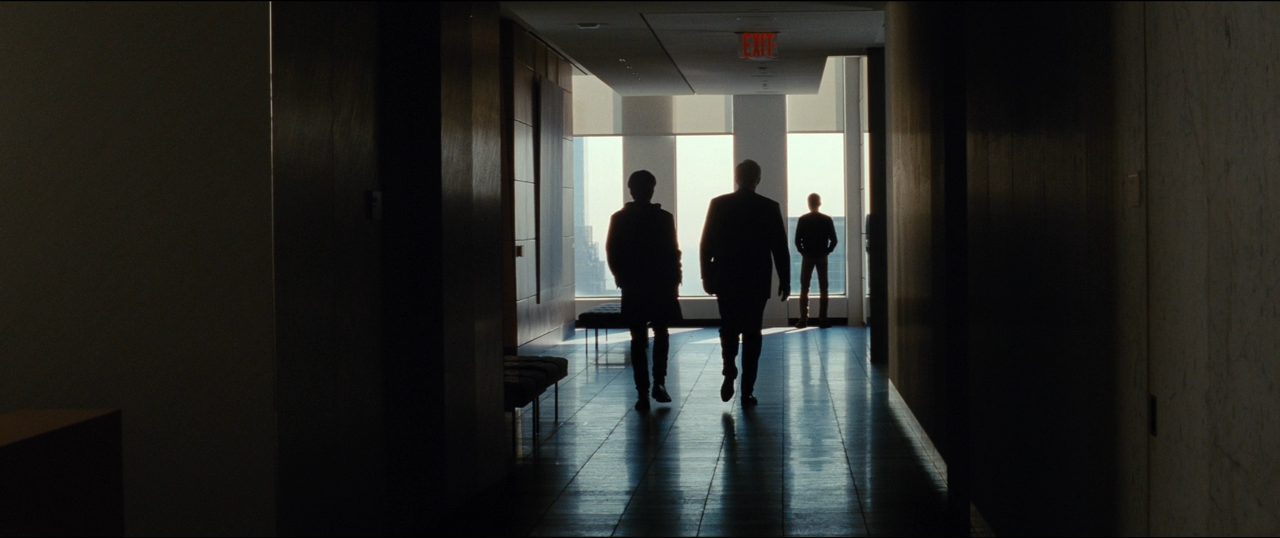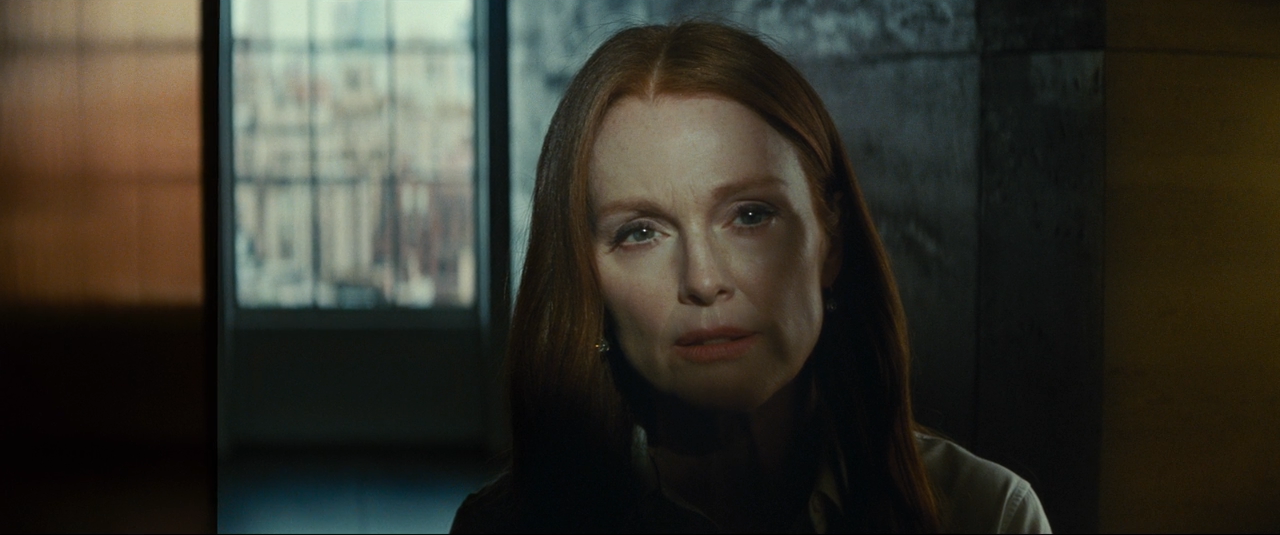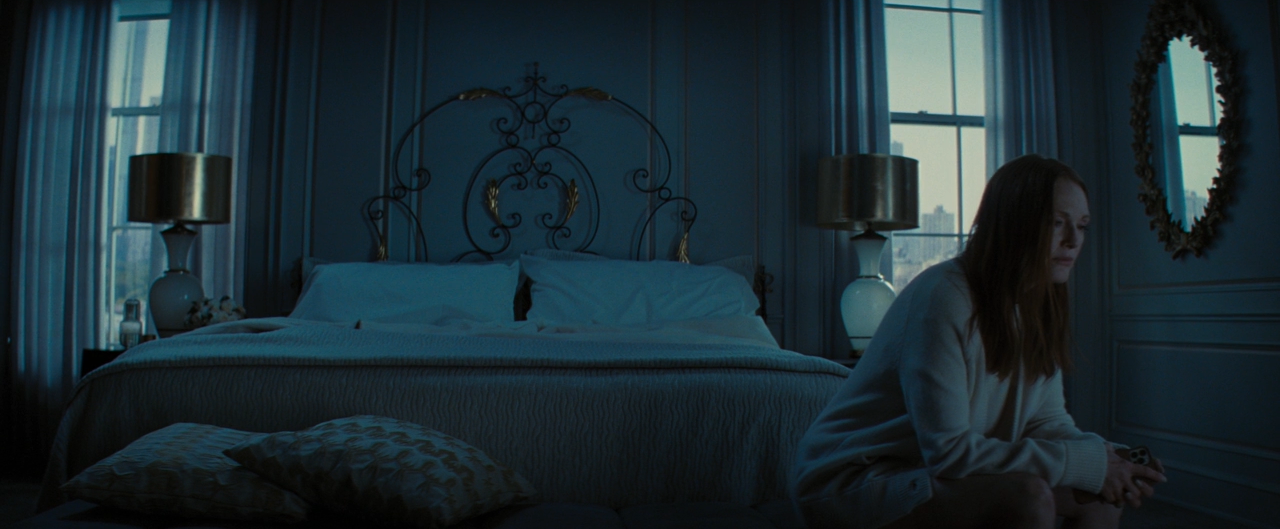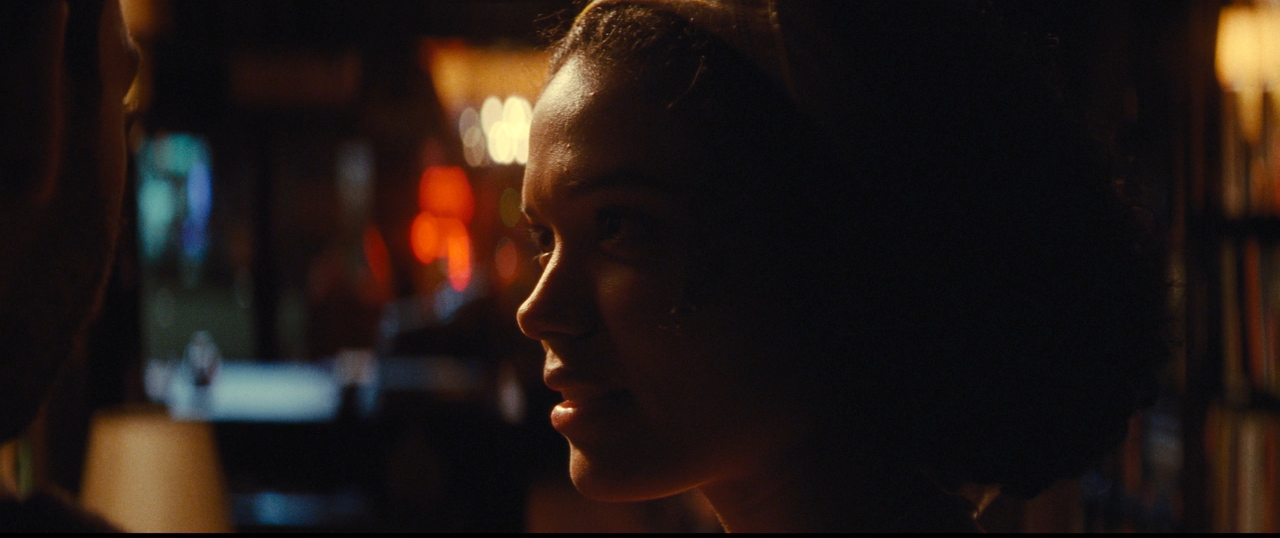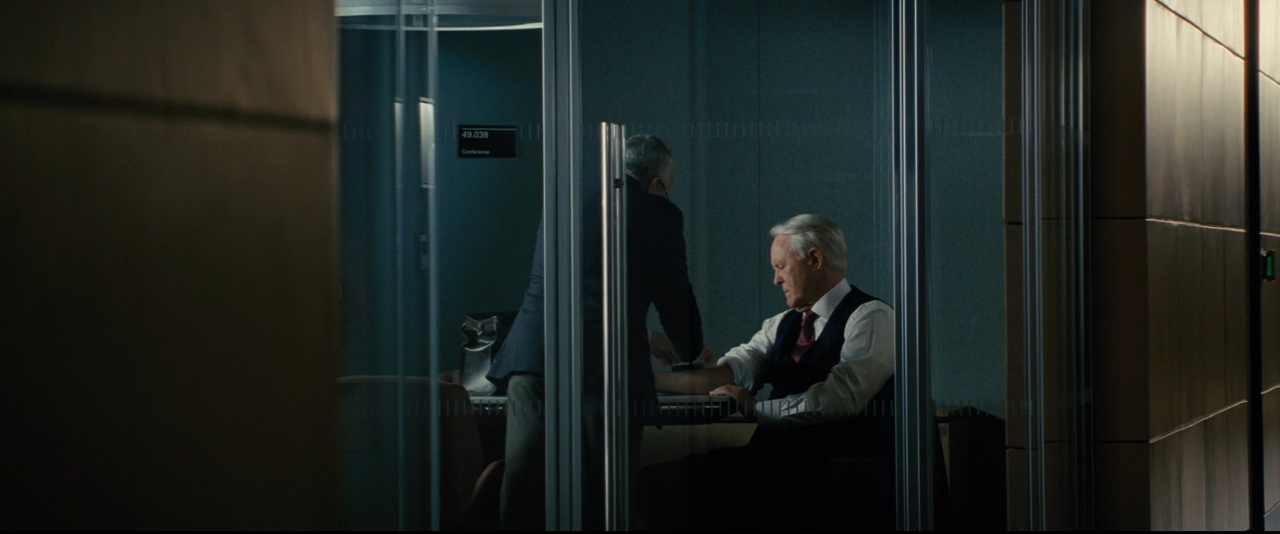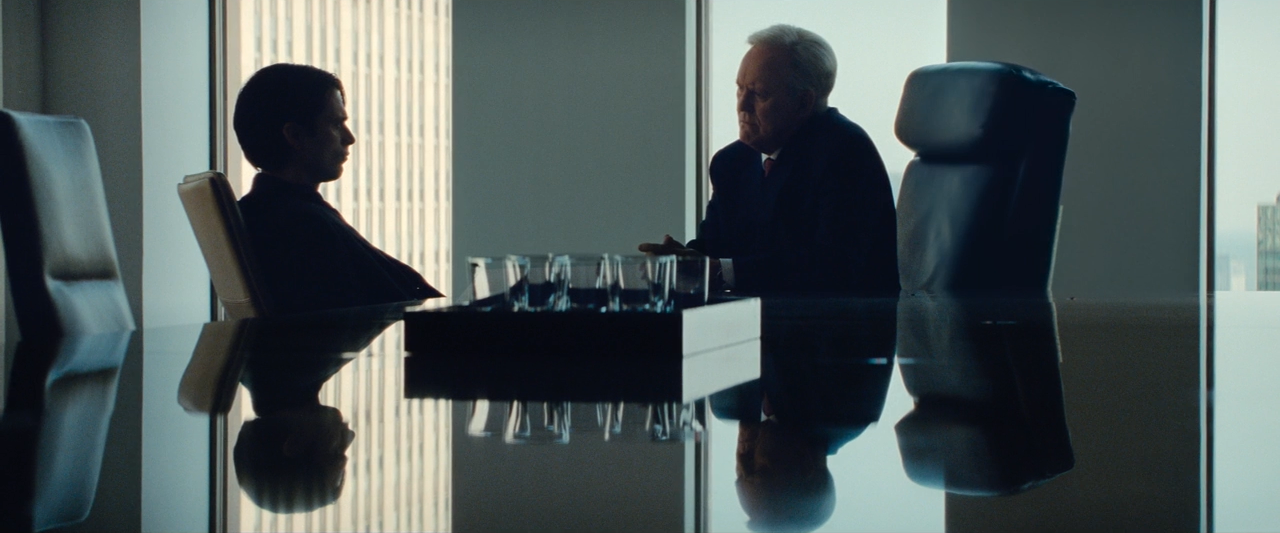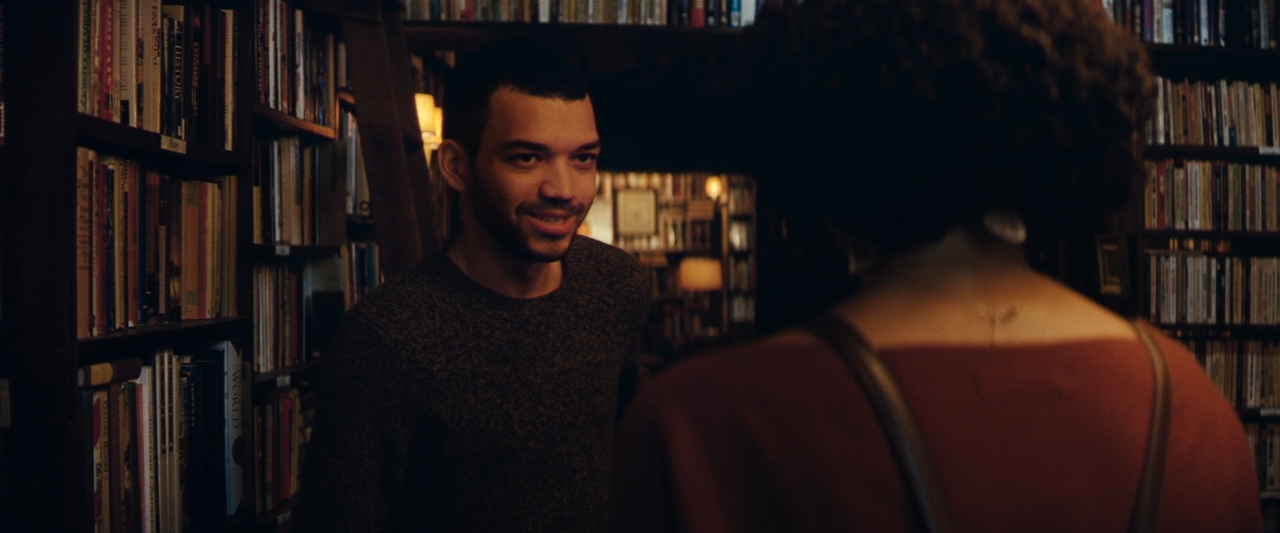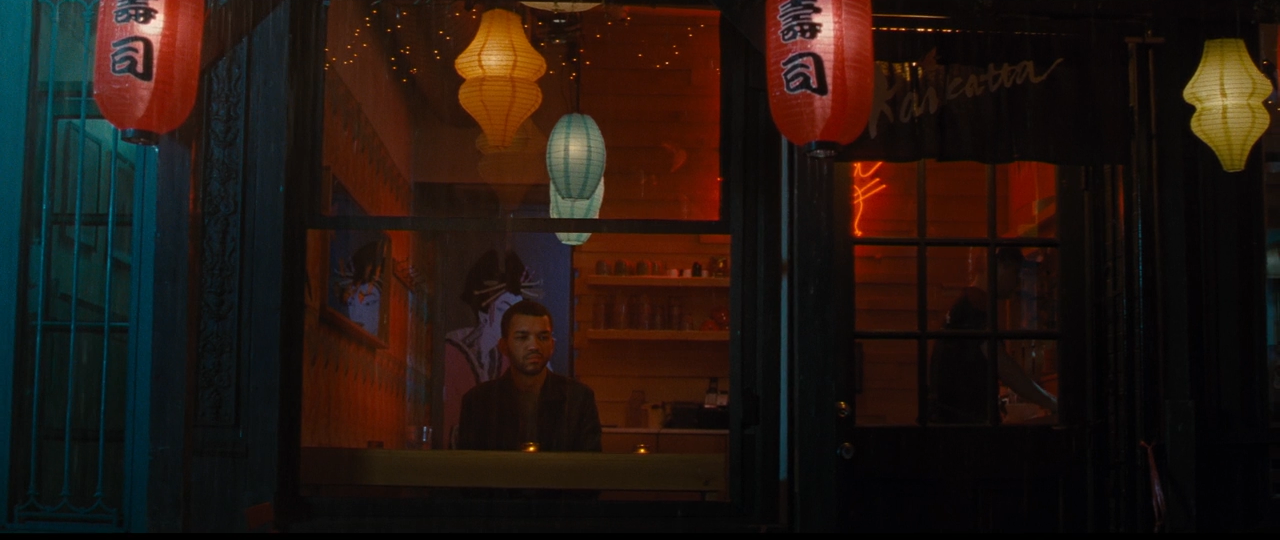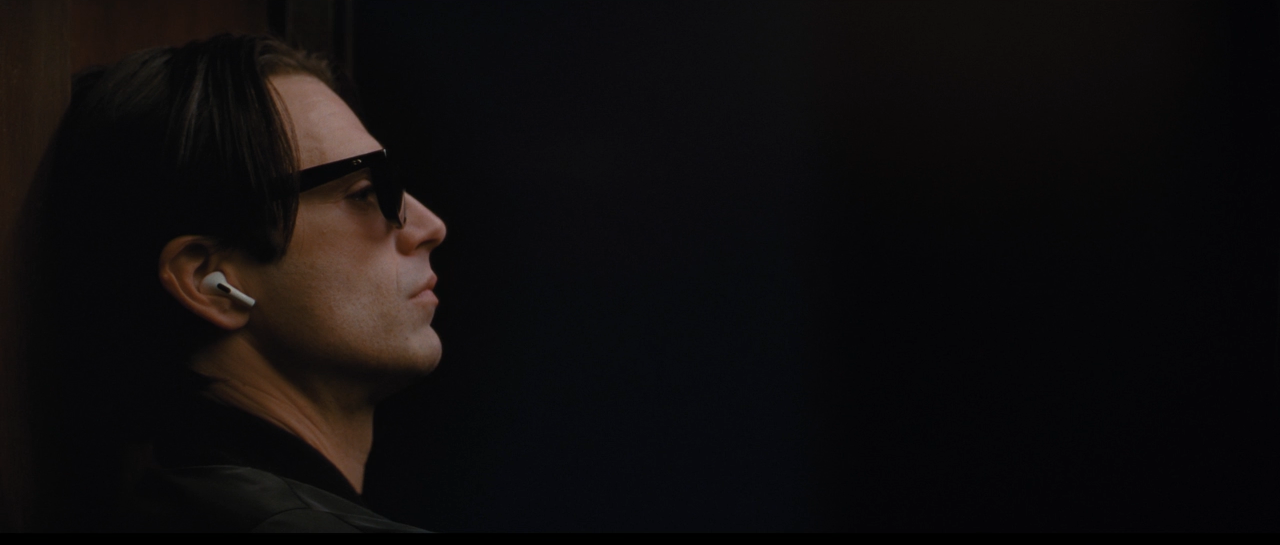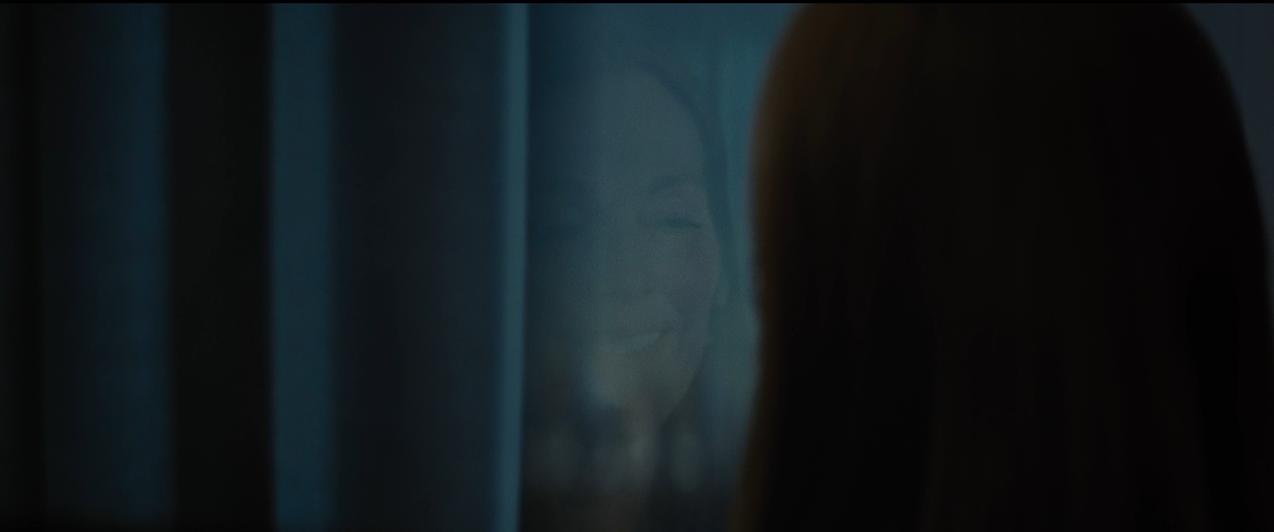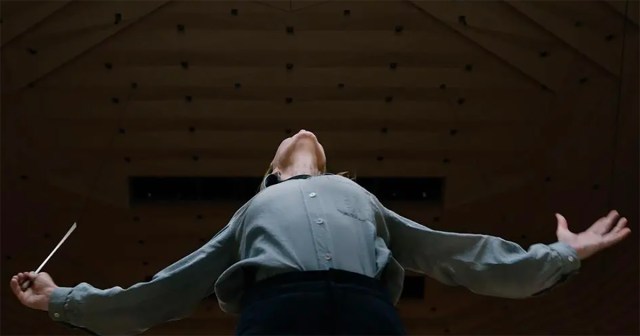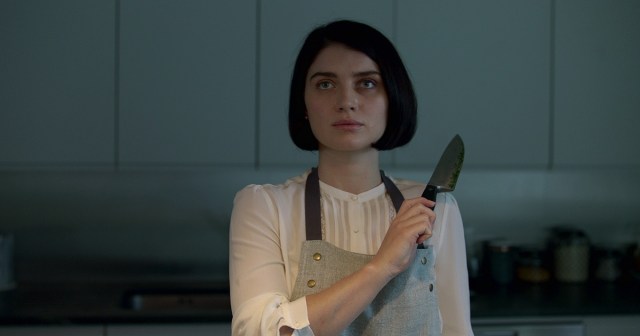TL;DR
- For his debut feature “Sharper,” director Benjamin Caron wanted cinematographer Charlotte Bruus Christensen to be the “Princess of Darkness” in homage to cinematographer Gordon Willis.
- Willis famously shot “The Godfather,” “Klute” and other movies in next to no light; in the case of “The Godfather” that creative choice was driven by Marlon Brando’s makeup.
- “Sharper” is a grifter movie that revels in the use of shadows and underexposed long takes.
- Prior to “Sharper,” Caron had notable success directing episodes of “The Crown” and Disney’s Star Wars episodic “Andor.”
Not knowing what will happen is the ultimate tease for a grifter movie like Sharper — the darkness just adds to the mystery
The British director of Sharper, now streaming on Apple TV+, wanted his DP Charlotte Bruus Christensen to become the “Princess of Darkness” in homage to cinematographer Gordon Willis, who famously shot The Godfather and other movies in next to no light.
Rather obviously, Vanity Fair’s Richard Lawson takes a romantic view of using film, unkindly describing the digital alternative’s look as “the plastic dullness of a toss-off digital Netflix thriller.” With Bruus Christensen’s film aesthetic, however, he warmly welcomed “the grain and light of what movies used to look like.”
READ MORE: Sharper Is a Wickedly Good Thriller That Reminds Us of Better Days (Vanity Fair)
In truth, Willis’ approach to lighting — particularly in the initial scene of The Godfather — occurred to him only at the last minute as a means to counter the strange makeup Marlon Brando was using. Just 20 minutes prior to the shoot, the only technique he could think of was to use a top light. Ultimately, this decision sealed the look of the movie from that point on. But maybe the die was already cast with his moody aesthetic for Klute, which he shot the year before, in 1971.
But Lawson’s coupling of the use of film with an old-fashioned con artist tale is understandable, clumsy as it might be, as Sharper is a thriller that revels in the use of shadows and underexposed long takes.
The director, Benjamin Caron, was new to feature films but had notable success in directing episodes of The Crown and Disney’s brilliant Star Wars episodic Andor. But for Sharper, he had asked Bruus Christensen “to think about these sophisticated compositions of using light and darkness,” as he told SlashFilm’s Ben Pearson. “But probably one of the biggest reference points for me was Klute. There was just something about the atmosphere of that film that I’ve always loved.”
Describing Willis’ work, Caron says, “He just basically infused every frame with meaning and atmosphere, and there was a beautiful delicacy to it. So it was a heavy leaning into the feeling of that film.” (As an aside, this 1971 film has been having a hell of a cultural resurgence as of late, BJ Colanelo notes at SlashFilm, with director Matt Reeves also citing the film as a massive influence on The Batman.)
READ MORE: Sharper Director Wanted His Cinematographer To Be ‘The Princess Of Darkness’ And Emulate Gordon Willis [Exclusive] (SlashFilm)
Caron also referenced The Color of Money, Drive and especially Fincher’s Seven. “What I loved about that film is that you were so claustrophobic for such a long period of time. You were held in that city. It was all mainly shot at night and it was rain, but then right at the very end of the film, you suddenly had this big desert expanse where there was nothing else.”
He could see that same scenario working for Sharper, he told Pearson. “We had all these characters penned into Manhattan, where the sight lines are limited and you can rarely see the horizon. But then, as in Seven, I love the end where suddenly you’re in this open space where you can see nothing but sky, and ultimately the characters have nowhere to hide.”
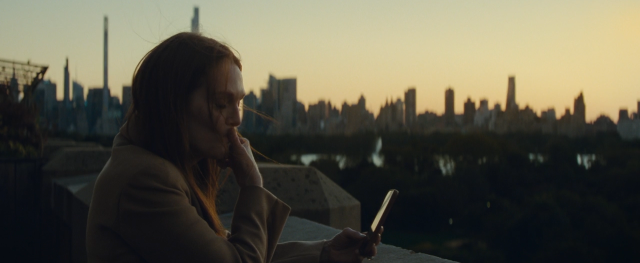
Apple’s own description of Sharper does harken back to thrillers of the past: “No one is who they seem. A neo-noir thriller of secrets and lies, set amongst New York City’s bedrooms, barrooms and boardrooms. Characters compete for riches and power in a high stakes game of ambition, greed, lust and jealousy that will keep audiences guessing until the final moment.”
Pete Hammond’s review of the film for Deadline describes the pull of this new swindler story. “Seeing the nifty grifter drama Sharper reminded me how rarely we encounter this kind of clever cat-and-mouse game that might fall into the noirish genre but really relies on diving into a world filled with characters who reveal slices of their lives that keep changing moment to moment,” he writes.
“It is the kind of movie I find enormously difficult to review because its ultimate success for a viewer is just watching it unfold, beat by beat, never quite knowing exactly where it is heading but still glued to the screen to find out,” Hammond continues.
“Written in a non-linear style and separated by chapters identified on the screen with character’s names, the focus keeps changing as we see events unfold, and eventually intertwine, as the story takes twists and turns and then twists right back again.”
READ MORE: ‘Sharper’ Review: Julianne Moore & Sebastian Stan In A Deliciously Twisty New York Noir Full Of Secrets And Lies (Deadline)
But it is director Caron, in his first feature, who kept the lid on what the characters were thinking, not wanting to clue the audience into the deceit. “Deception is definitely the defining feature of this film, and I’m always interested in character’s motivations and how people talk or flirt or lie or impersonate in terms of getting what they want,” he said to Pearson.
“I thought it was really important in this film that we never had a nod and a wink to the audience at any moment that something was about to happen. Sometimes I think there’s a tendency, whether it be from the storyteller or even from the performer, to show too much.
“And I think right from the very beginning, even in conversations with the actors, we wanted to hold all of that back. Because I really remember reading the script and I really remember those moments where I was floored and I was genuinely shocked and surprised. So it was really important they held onto that integrity.”
READ MORE: Sharper Director Benjamin Caron On His Twisty New Neo-Noir [Exclusive Interview] (SlashFilm)
Now, Watch This:
Now, Listen to This:
LIGHTS, CAMERA, ACTION! SPOTLIGHT ON FILM PRODUCTION:
From the latest advances in virtual production to shooting the perfect oner, filmmakers are continuing to push creative boundaries. Packed with insights from top talents, go behind the scenes of feature film production with these hand-curated articles from the NAB Amplify archives:
- “Decision To Leave:” Park Chan-wook’s Love Story/Detective Story
- Fantastic Fantasía: Making Alejandro González Iñárritu’s “Bardo”
- “The Banshees of Inisherin:“ Martin McDonagh Tells a Wonderful/Terrible Tale
- Control and Chaos: Todd Field on “Tár”
- Family Pictures: James Gray’s “Armageddon Time”
- She Stoops to Conquer: Gina Prince-Bythewood Goes to War for “The Woman King”
- The Revolution Will Be Televised: Making the Immersive, Explosive “Athena”


